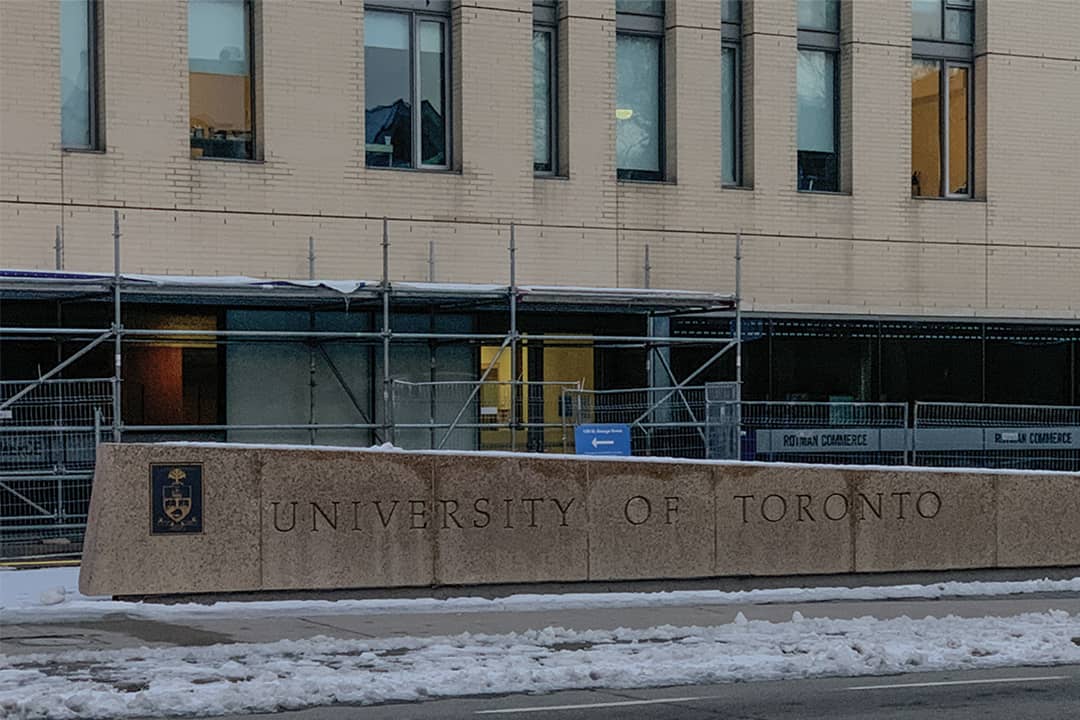Content warning: This article discusses antisemitic violence, including mentions of concentration camps and genocide.
During the week starting January 22, U of T hosted various events to discuss historic and current antisemitism, leading up to International Holocaust Remembrance Day on Friday, January 27.
The events took place amid recent conversations about antisemitism prompted by allegations of hate speech at the Temerty Faculty of Medicine and U of T’s rejection of the International Holocaust Remembrance Alliance’s (IHRA) definition of antisemitism.
This year’s International Holocaust Remembrance Day marked the 78th anniversary of Soviet troops liberating the Nazi death camp Auschwitz-Birkenau, where more than one million people were murdered.
Restorative Circle
On January 23, U of T’s Anti-Racism and Cultural Diversity Office hosted a Restorative Circle for the Jewish community via Zoom. According to the event description, the event was intended to “share the impact and harm of antisemitism on us and our community — as well as repairing and reflecting together.”
Jacqueline Dressler, the manager of advocacy at Hillel UofT and the event facilitator, asked participants to reflect on matters ranging from “an intention that will support you on your journey of healing,” to “Jewish joy, or [feelings of] resilience.”
Participants responded to this activity through the chat function, because verbal communication was not available to participants. Some discussed studying the Torah, connecting with distant relatives, and “solidarity across differences.”
The university originally set up the event in response to antisemitism concerns at U of T. “I can’t comment on how the university was promoting it, because we’re not employees of the university,” Dressler told The Varsity in an interview. She said she initially “didn’t get the impression that it had to do with Holocaust education week.”
Survivor testimony
The following day, Hillel UofT, Jewish Addiction Community Services (JACS), and Friends of Simon Wiesenthal co-hosted a International Trauma and Survivor Testimony event at the Wolfond Centre on 36 Harbord Street.
The event included a presentation by Jenna Quint — JACS’ Courage 2 Change program coordinator — on the sociological and medical manifestations of intergenerational trauma, down to its genetic impacts.
She discussed the four main adaptational styles of families of Holocaust victims. These include “victim families,” afflicted with pervasive depression; prideful “fighter families” who lack the ability to trust; “numb families,” with intolerance for positive or negative stimulation; and the successful, “we made it” families, whose children may feel neglected in the pursuit of goals.
During the event, Gershon Willinger, a Holocaust survivor, gave a presentation on his childhood. During World War II, many parents hid “unknown” or “hidden” children in attics or cellars, or even sent them to Christian families or certain religious institutions to hide them from the Nazi regime. Willinger became one of these “unknown children” after his parents were killed in the Sobibor death camp in Poland in 1943.
Sima Shmuylovich, an undergraduate student majoring in computer science at the UTSG, who attended the presentation, told The Varsity, “I’m obviously happy that U of T is trying to do more events… but I think it’s typically only people from the Jewish community who show up. Getting the larger community to come is definitely the goal.”
Book Panel Discussion
On Thursday, the Anne Tanenbaum Centre for Jewish Studies hosted historian Harold Troper in a panel discussion about his 1983 co-authored book, None is Too Many: Canada and the Jews of Europe, 1933-1948. The book is widely credited for exposing Canada’s unwillingness to accept Holocaust refugees.
Allison Kinahan, a graduate student in the history department, told The Varsity, “The focus on the Canadian aspect is interesting, but I think in conversations there should be an element where we discuss our own colonial past.” She added, “But, from what I’ve heard about the Holocaust events that are being held this week, I think that is being covered as well.”
In an interview with The Varsity, Troper said, “It’s not false modesty for me to say that I’m as surprised as anybody by the success of the book, by the way it has shaped discussion and debate.” He continued, “That the book still speaks to people today about the Canadian scene today and about issues of refugees and immigration speaks to the power of the written word.”
With files from Lexey Burns.


